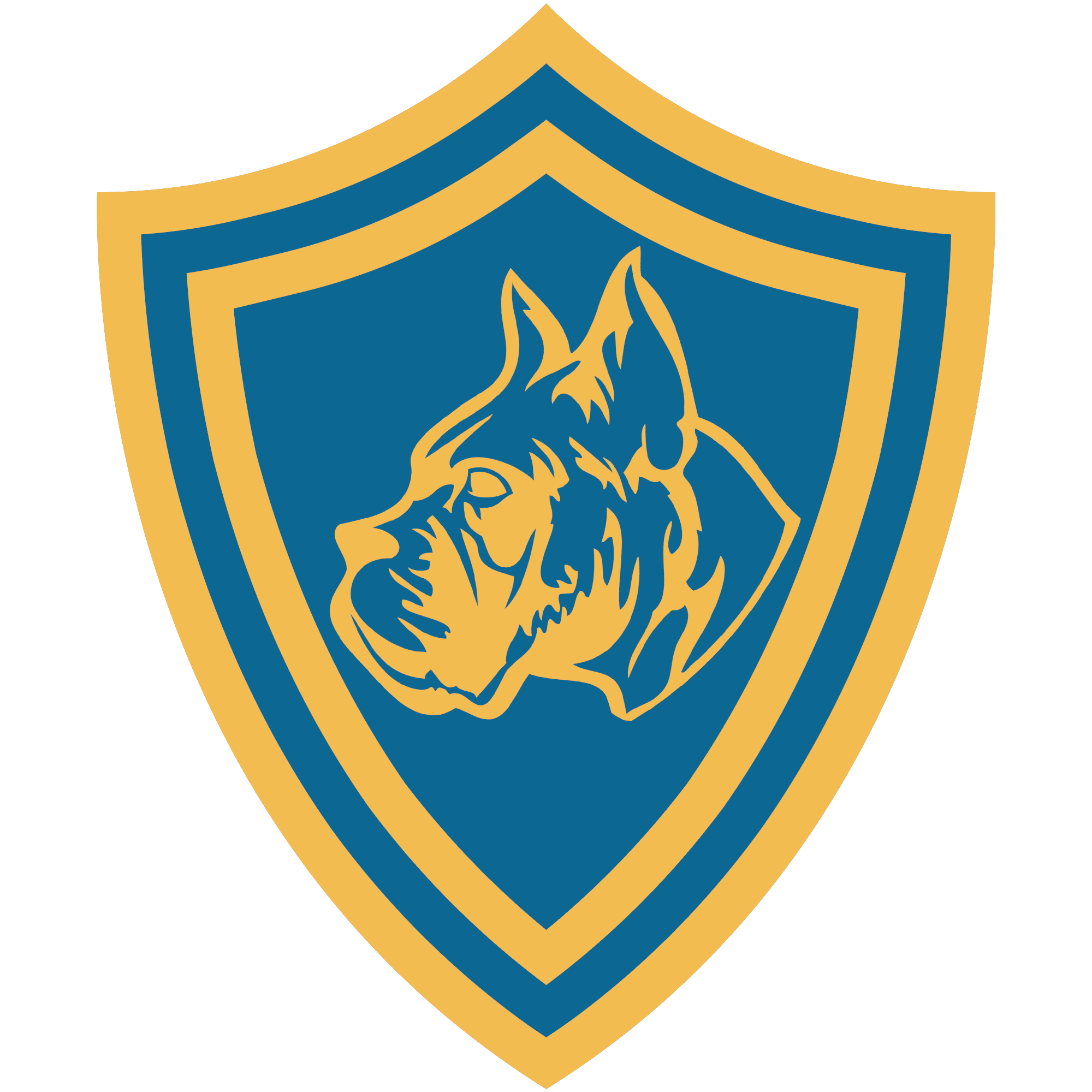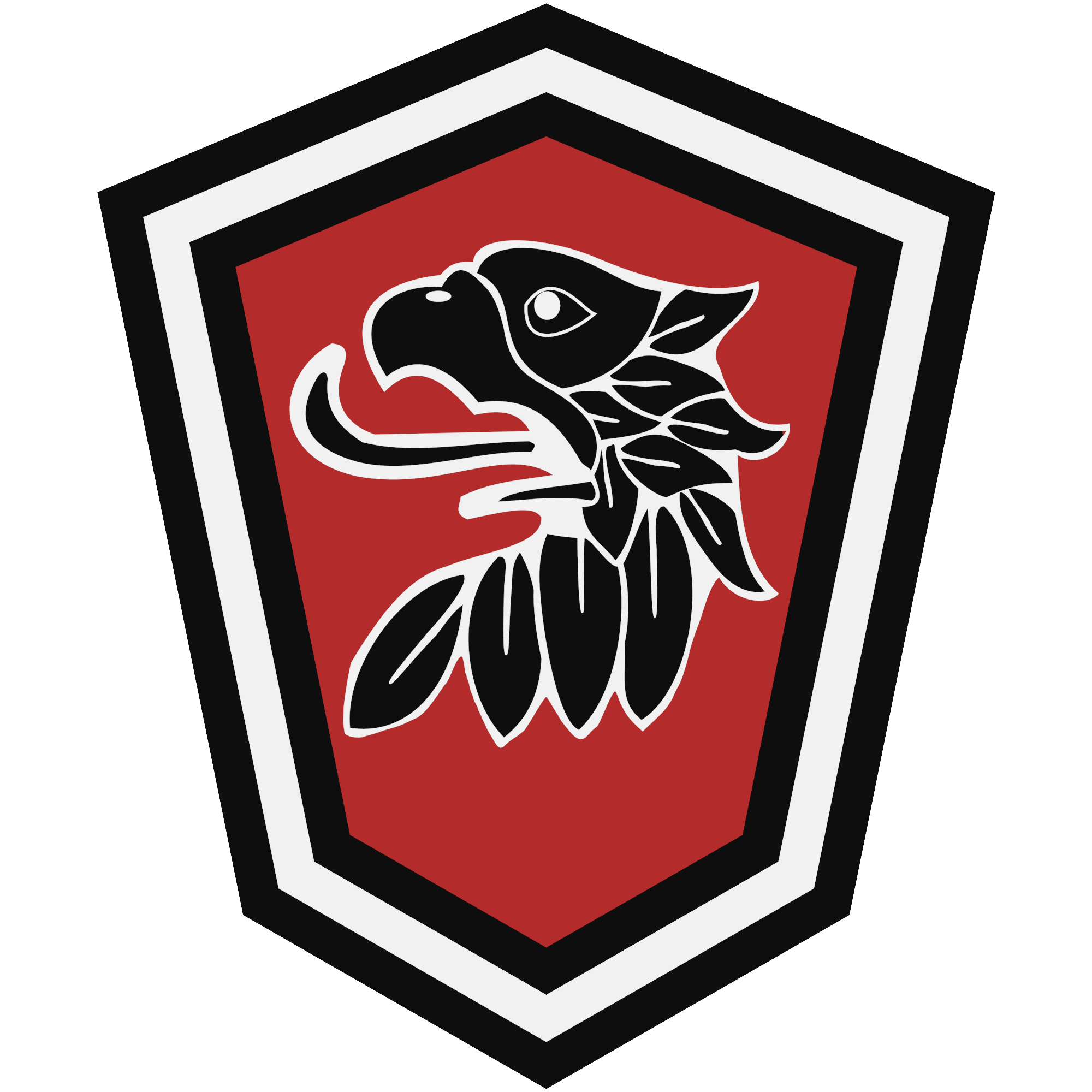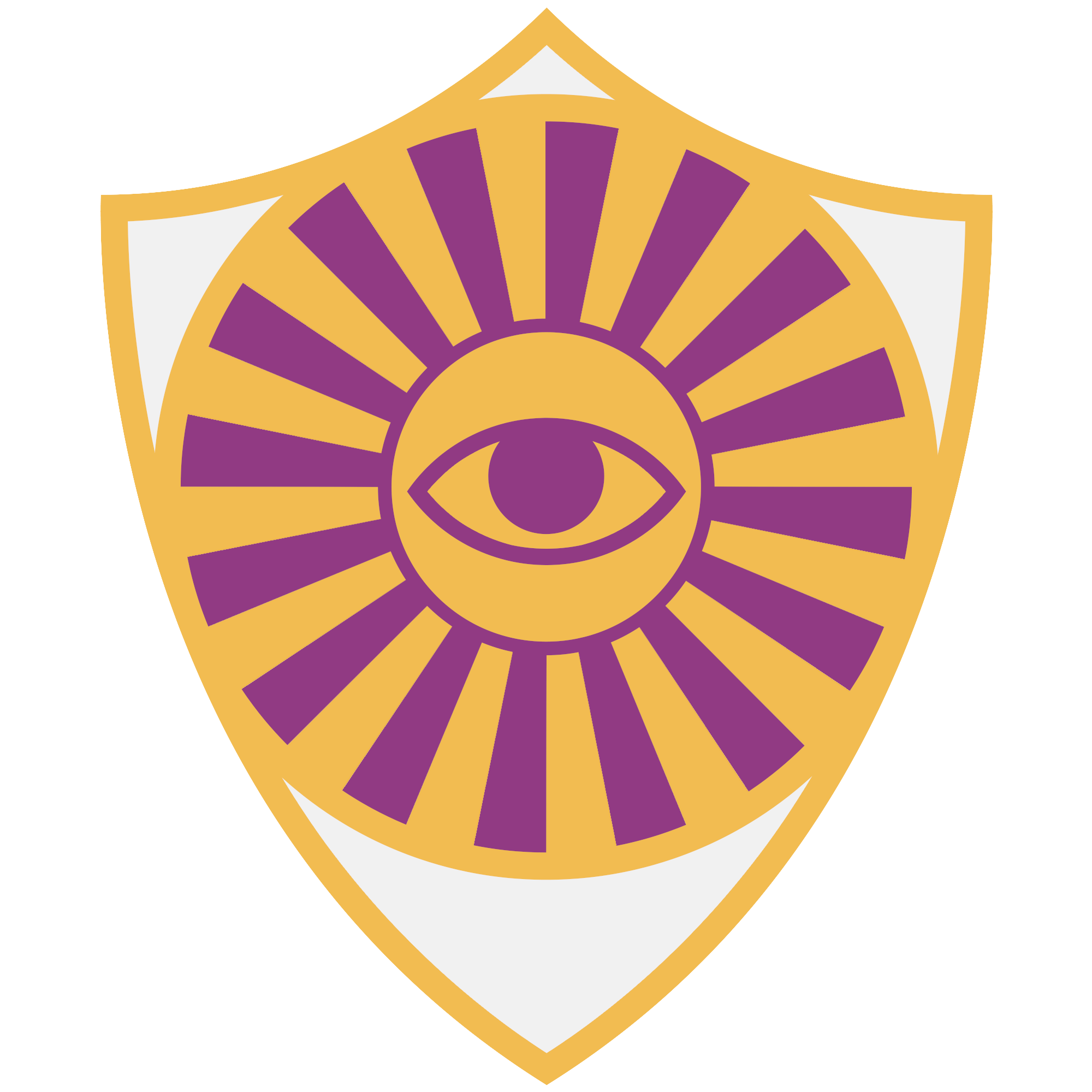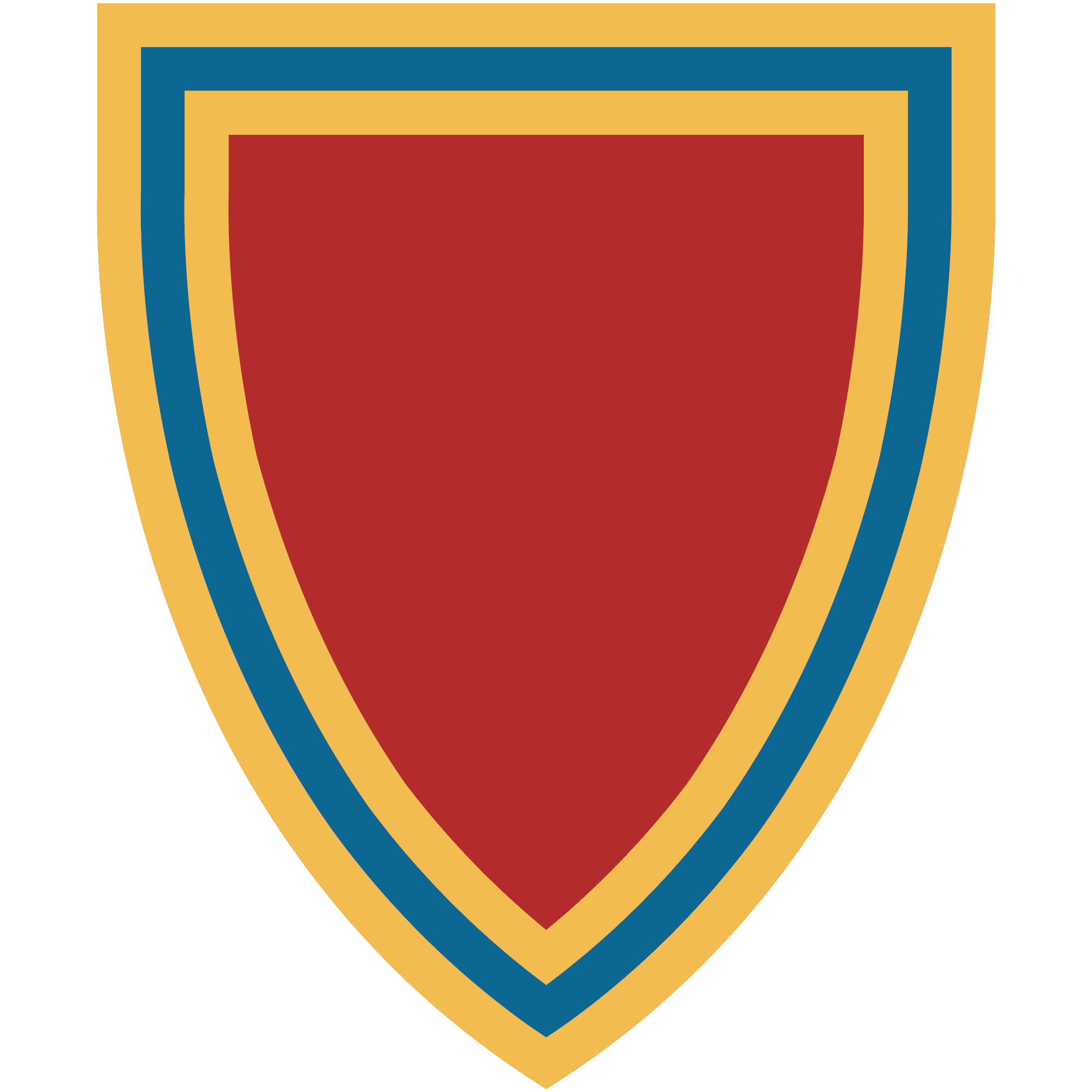The Order of the Guardians
Protectors of the Dominion
The Order of the Guardians was created to protect the Dominion from the nefarious magics of the Eternal Empire. However, they soon expanded their original oaths to include the entire natural world. The fel powers of necromancers, blood mages and darksiders are a blight on the world and perversion of nature. The Guardians alone have the power to take this black magic, and so they have taken it upon themselves to be the defenders of order, nature and the innocent.
The Guardians have more at their disposal than simply faith and strong words to combat the evils of magic; by taking up their holy oaths, they have been granted the power to take away others' ability to perform magic. They are anti-magic soldiers, fighting an everlasting battle against the most powerful of forces in the world.
Desperate Origins
The Guardians may not be the oldest of the ten Holy Orders, but they can lay claim to having the most prestigious of founders: the Dominion itself. As the Dominion was formed by the ever decreasing number of mortal nations, one of its first orders of business was to create a force that could take away the Eternal Empire's most valuable and fearsome weapons: its necromancy and blood magic. And so, it created the Order of the Guardians by drawing from a host of minor religious orders, abbeys and monasteries those with the divine gift to nullify magic. It may not have been the most devout and sincere of origins, but each monarch and ruler of the Dominion nations (many of which now serve the Crimson Wight) signed the scroll mandating the formation of the Order. This gave the Guardians significant political clout and allowed them the freedom to move through the Dominion to conduct their business. Even today, there aren't many officials and rulers brave enough to stop a Guardian performing his duty. During their early years, the Order was a strictly military affair, bringing into its ranks any knight, noble or peasant willing to take on the Oath and do battle with the Empire. The Order quickly looked as if it would eclipse even the Dominion Army, but the numbers soon levelled out, and even began to wane, as the Guardians realised there was a greater need in the world than just protecting the Dominion's political borders.Keeping safe their Charges
The Vow the Guardians give when they take up their Oath is an eternally focussed one. Unlike some of the ther nine Holy Orders, their Vow is not a change in behaviour, but rather a promise to something else. Upon taking up their Oath, the Guardian chooses a charge to watch over and protect. As long as this charge remains healthy and unharmed, the Guardian retains his anti-magic powers; but should the charge come to harm, then the Guardian will have to suffer the Penance. It were the charges that shaped the future of the Guardians and the sphere of influence they would swear to protect. The Guardians can only choose a living thing as a charge (be it plant, animal or elsewise) and so during the course of their duties, the early Guardians found themselves doing as much caretaking as they did fighting devilish sorcerors. This eventually led to a change in focus from protecting only humans, to protecting all of nature, as the Guardians could see how precious the natural world was around them, and how fragile it truly is.Heresy or practicality?
Like the Order of the Lantern, the Guardians are tasked with combating those that abuse magic. Nominally this means necromancers, blood mages and darksiders, but any magic user can be a target. It is no surprise then that the Guardians view sorcerors with a great deal of suspicious and distrust, with many believing that magic is too great a power to entrust to humans. There is another side, however, and to call it controversial is an understatement. Some Guardians believe that magic is nothing more than a means to an end. It is the will and temperament of its user that determines it morality. No mage should be under suspicion until his actions warrant it, they say. In fact, these progressives argue, magic could aid the Guardians more than they are willing to admit. These Davidians (so named after Saint Daivd, the patron saint of magic) are fully trained mages themselves, following the age old wisdom of fighting fire with fire. Just as they take away their enemies' ability to cast magic, they cast it with free abandon, making them far greater foes than normal Guardians. To the conservative factions within the Order, the Davidians are heretics, who shame their Oath by doing precisely what the Guardians are meant to prevent. This debate has infected every level of the Order, but luckily has not resulted in anything worse than a scuffle or two. Nonetheless, the Guardian Council is divided between the conservatives and the Davidians, each trying to gain as much power in the Council as possible while tearing down their opponent. The Order still stands, and still fights against evil magic-users, but its bureaucracy has slowed to a crawl which has hampered its ability to perform its duties as it should.Structure
Like its father, the Dominion, the Order of the Guardians is ruled by a council, with each member nation of the Dominion having a seat at the table. In the most recent years, the Order has even allowed those nations that are independent from both the Dominion and the Empire to join its ranks, knowing that it will need all the help it can get.
Each member of the Guardian Council is not only a representative of his home nation, but of his own nation's chapter. Each nation on the Council has pledged to support a Guardian Chapter, and each Chapter is also governed by a council of its own. During the Order's formative years, the Dominion impressed upon it Dominion values and Dominion methods, and these have stuck with the Order throughout its life. Councils, deliberations, votes, it is all quite civilised and modern, but there are some that prefer a more iron fist.
The Chapter in Moskiev, unsurprisingly has advocated for a more military-type hierarchy and greater autonomy. It says this will allow it to act more quickly against threats in its nation, and chafes at the slow democratic process of the Guardin Council. While the Council does move with somber speed, carefully weighing each option before deciding on a course of action, many believe that the Moskievan Chapter is being pressured by the Imperial Throne of Moskiev and that it threatens to tear apart the whole foundation of the Guardians.
Public Agenda
The Order of the Guardians have one mission in this world: to protect humanity from all those who would abuse magic. At its core, this might seem quite close to the Order of the Lantern, and while the two Orders often work alongside each other, there is a key difference between them. Unlike the Lantern-Bearers, the Guardians are not an inquisitive or detective force. They do not go out to hunt nefarious magic-users. Instead, the Order aids the Dominion in three broader ways.
The first, and most perilous, way is by actively joining the war effort against the Eternal Empire. The Order of the Guardians boast a sizable contingent of soldiers among its various Chapters, and at any point in time it has dozens of soldiers on the frontline of the Dominion's conflicts. In battle, the Guardians are invaluable, as they can neutralize the necromancers and bloodmages of the Empire, robbing the Empire of its greatest weapons. Unfortunately for the Guardians, the Empire is well aware of their talents and actively hunts down each Guardian on the battlefield. Those that survive the onslaught of the Empire and return home from the war are the fiercest and most dedicated warriors the Order has.
The second means by which the Order assists the Dominion are through what it calls its enforcers. The enforcers are the militia and guardsmen of the Order. With the permission of the lords of the lands, and often without, Guardians are sent out to towns and villages to keep an watchful eye on them. How long they remain at their post varies, but some Guardian enforcers have stayed in a single town and village for decades. Here they watch, patrol and protect their town and village, ensuring no abuse of magic is found within their territory. The enforcers are often the first to alert the Guardians and the Lantern-Bearers that something is afoot. Like priests and traders, the enforcers come to learn the ebb and flow of their hamlets and villages, and their knowledge of their territories are second to none.
Enforcers are not always tied to a single area. In many cases, there simply isn't enough enforcers to spare, and some enforcers wander the Dominion helping where they can and stopping whatever evil they find.
The last way the Guardians aid humanity is through their diplomats. The Order has agents in many royal courts and has amassed a vast amount of knowledge in combatting magic-users. With this the Order can advise the various nations and organisations of the Dominion at how to best protect themselves from necromancers, bloodmages and other magic-users. The Order also diplomats with the other holy orders, particularly the Lantern-Bearers, and they freely share what information they have so that they all can be stronger together.
Chapters of the Order
Albian Chapter
The Guardians of Alba are known as the Watchdogs of the Dominion, and the name refers to more than their coat of arms. The overwhelming majority of Alba's Guardians are enforcers, and it is a rare sight to see a village or hamlet without an enforcer and his trusty hound. Many more Guardians choose the path of the wayward enforcer, travelling throughout the lands, righting wrongs and combatting evil. While the Guardians do their duty on the battlefield with the Eternal Empire, the Albian Guardians believe their true cause is at home, protecting their fellow countrymen. "Clean up your own home, before you clean up another's" is the maxim they use when the other Chapters accuse them of not pulling their weight in the war effort. Nevertheless, their efforts at home have helped, and Alba is a country relatively free of necromancy or blood magic. The Albian Guardians have chosen the familiar dog as their charge and ward to care for in their Oath. A dog is a man's best friend, and their dogs not only ground them in reality, but are guardians in their own right, keeping their partners safe with their excellent senses and their powerful jaws. A Guardian's hound is as loyal to him as he is to the Dominion.Moskievan Chapter
As with everything else in their nation, the Moskievan Guardians are an unsubtle lot that have caused a lot of conflict for others. As a holy order, the Guardians fall under the purview of the the Third "Holy" Principate, but they deal with the issue of magical abuse, which is dealt with by the Twelfth "Arcane" Principate. To make matters more complex, the Moskievan Guardians supply as much soldiers to the war efforts as the Orders of the Knight and of the Sentinel, and all military matters are dealt with by the Second "Hammer" Principate. The holy orders have always been a thorn in the side of the empire's bureaucracy, and none more so than the Guardians. Due to the empire's military draft, all Guardians have spent time in the military, and most naturally drift back there to give the Eternal Empire hell with their newly acquired anti-magic talents; and so they are more than happy to serve the Hammer Principate. There are those, however, who are more cunning and, oftentimes, more cruel. These drift towards the Arcane Principate who use these Guardians as wayward enforces, but only in name. The Arcane Principate is built on the regulation of magic, and those the flaunt the law must be made examples of. The Principate have agent across the empire to do its bidding, and many of these are Guardians, ready to be the Arcane Principates willing thugs. It is the Holy Principate that loses out in this mad scramble for power. The Moskievan Guardians are the least devout in the Dominion, and the Chapter lays claim to precious few diplomats and scholars to guide the Empress and the Princes in guiding Moskiev to a grander future. The Moskeivans have chose the mighty eagle as their ward, a sign of their nobility, a challenge to train, and a loyal eagle can claw the eyes out of any who would wish harm on their master.The Davidians
The Davidians are not strictly a Chapter, but they may very well be in the future. Their numbers are growing every year, and their influence over the other members of the Order have grown even quicker. Soon the Davidians will have the power to demand their own Chapter, and when that day comes the Order will never be the same. For now, the Davidians have headquartered themselves in Alba, in an unused wing of the castle that houses the Arcane College. The Order of Guardians did not give them leave to do so, and many Guardians saw this act (veritably sleeping with the enemy) as blasphemy and heresy of the highest order. The deal between the Davidians and the College benefits both greatly. The Davidians gain the preeminent source of magical knowledge in the Dominion to learn from, and the College gains protection from anyone who would do them harm. Even the Lantern-Bearers are loathe to approach them with the Davidians on their doorstep. There are fears in the Order that there may come a time when there is no difference between the College and the Davidians, when one has consumed the other and we are left with true mages with the ability to render other mages useless. Such mages will have the power to take over Alba, the Dominion, and maybe even the world should they choose it. The majority of Davidians has come from other Chapters where they swore their Oaths, and so their wards are those of their parent Chapters, but there are a few new Davidians who learned the ways of the Order here at the Arcane College. These pureblood Davidians have decided among themselves to choose fire as their ward. Each gives a piece of his soul to enchant a lantern to create a living flame. As long as the flame survives, the Davidian's Vow is kept. Fire is light, and light is knowledge, and knowledge is power.Sigil Rules
Oath of the Guardian
Vow
To ensure that the Guardians understand what they are fighting for, they are given a living (and natural) thing to care for and protect. They must then care for this living thing, making sure it stays healthy, in good condition and (most importantly) alive. They also can never be too far from their ward. What this living thing is, is up to the GM and will depend on the Guardian’s specific religion, sect or order, or other belief system. Broadly speaking, as long as it is natural and alive, it could work. A few examples are: plants, animals, fire.
Power
The Guardian can temporarily remove someone’s ability to cast magic. This is an Opposed Skill Check between the Guardian’s Will Skill and target’s Special Skill. If the Guardian succeeds this Opposed Skill Check, then the opponent cannot use any magical ability until the Guardian has performed a number of narrative actions equal to the first digit of the Guardian’s Will Skill Level. The opponent also gains a Mental Wound equal to the difference between their rolls. If the Guardian rolled exactly on his Modified Skill Level, then the duration of the Power’s effect is increased. The opponent won’t be able to cast magic until the Guardian has performed a number of narrative actions equal to double the first digit of the Guardian’s Will Skill Level. The Guardian can also remove any ongoing magical effect on an object, animal or person on a
successful Will Skill Check. If successful, the magical effect is permanently removed, until of course another character reapplies it.
Perk
The Guardian’s anti-magic abilities extends beyond his ability to affect others, and becomes a personal shield that protects himself from any mage who would do him harm. As long as he keeps his Vow, the Guardian cannot be targeted by magical effects other than those Holy magical effects found in this chapter. The Guardian
can still be harmed by the consequences of magic, just not directly or indirectly targeted. For example, a fireball thrown at the Guardian
will have no effect, but if that fireball sets a house on fire, the Guardian can be hurt by those flames.
Penance
The Guardian swore to protect his ward from harm and to stand against the evils of magic. By breaking his vow to his ward, the evils of magic are inflicted upon him. The Guardian’s Penance is three fold. Firstly he cannot use magic at all, even other Holy Magic. Secondly, any magical effect made against him does double damage. Lastly, being in the vicinity of the same type of object/animal/plant/icon as his previous ward now gives him a -20 all Skill Checks.
Remove these ads. Join the Worldbuilders Guild














Comments